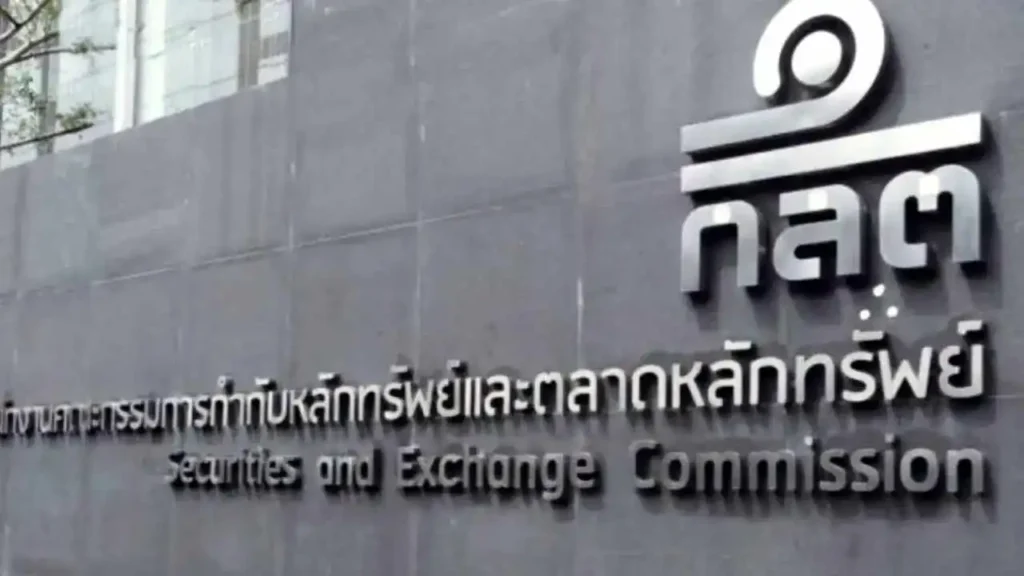-
Thailand blocks access to unauthorized cryptocurrency platforms, supports law enforcement efforts against cybercrimes.
-
Ministry of Digital Economy and Society directs Thai SEC to collaborate on sharing information to combat unapproved digital asset providers
-
Thai SEC implements a progressive strategy, allowing users time to manage assets before imposing access limitations, advises swift asset removal from affected services.
The Ministry of Digital Economy and Society has instructed the Thai Securities and Exchange Commission (SEC) to actively cooperate with the SEC in order to exchange information on unlicensed vendors providing services related to digital assets.
In addition to shielding investors from the dangers of unregulated platforms, such fraud and money laundering, this action is being done to improve the efficiency of law enforcement operations.
The Thai SEC Directed to Spread Knowledge about Illegal Crypto Platforms.
The Thailand SEC received a directive from the Ministry of Digital Economy and Society not too long ago asking for important information on digital asset service providers who lack the required licencing. Thanks to this cooperation, the government will be able to obstruct access to these platforms and take other preventative actions, said SEC Secretary-General Pornanong Busaratrakul.
The Thai Technology Crime Prevention and Suppression Committee underlined this cooperation in a resolution enacted on April 19. Working together, the government and the SEC are enhancing law enforcement’s capacity to stop illegal activity on unregulated crypto platforms.
Previously suing unregistered operators, the SEC is now working with government agencies to control the sector in a calculated change of direction. The SEC has strangely already targeted well-known marketplaces like Binance and Bybit.
Also, Read; Gulf Binance Exchange: Binance and Gulf Innova Pave the Way for Thailand’s Crypto Adoption.
Simultaneously, the Thai SEC is raising concerns over the dangers of dealing with or investing in unregistered providers of digital asset services. Before investing their money into the market, investors should do their homework and be cautious of fraud and illegal financial activities, according to the Thai SEC.
The Commission suggests investors use its database of licenced operators to confirm the licencing status of digital asset service providers in order to further ensure compliance and reduce risks.
As in the cases of the Philippines and India, Thai authorities have decided to restrict access to “unauthorised” cryptocurrency websites.
Limiting unlicensed platforms shows Thailand’s commitment to supporting law enforcement in their fight against cybercrime. The Technology Crime Prevention and Suppression Committee has ordered that the SEC disclose the Ministry of Digital Economy and Society pertinent information about unauthorised providers of digital asset services in order to help enforce access restrictions.
The SEC promotes a gradual strategy that considers possible effects on clients and allows them time to manage their assets before restricting access. The SEC advises customers to stop using the affected services right away.
Encouraging the expansion of the bitcoin ecosystem while reducing fraudulent activity in Thailand’s regulatory structure is a finely balanced act. Programmes that let high-net-worth individuals and institutions buy bitcoin ETFs demonstrate support for innovation, and laws safeguard investors’ interests and preserve market integrity.
Following Thailand’s aggressive approach to controlling the digital asset market, further information regarding the changing regulatory environment and its consequences has surfaced.

One way that regulators have responded to technical advancement is by limiting access to unofficial cryptocurrency websites. Regulators must keep finding a balance between encouraging innovation while safeguarding investors and guaranteeing systemic stability because of the fast development of the digital asset ecosystem.
Thailand’s solid acts show a dedication to creating a safe and friendly atmosphere for the trade of digital assets. It’s regulatory strategy is consistent with international standards established by countries such as the Philippines and India, which have also implemented policies to stop illegal activity in the market for digital assets.
Working together, government agencies and regulatory bodies demonstrate their dedication to solving cross-border issues and advancing international regulatory coherence. A nation can successfully fight financial crimes committed through digital platforms by combining its resources and experience.
The foundation of a robust ecosystem of digital assets are not only governmental actions but also initiatives that inform and involve institutional investors. When investors are aware of the dangers connected to unregulated platforms and have the resources necessary to make wise judgements, their interests are best served.
Industry participants and regulatory agencies may work together on educational initiatives to increase knowledge of regulatory compliance and best practices.
Market players face both possibilities and difficulties at the nexus of regulatory compliance and technical innovation. Though breakthroughs like blockchain technology result in previously unheard-of levels of efficiency and openness, they also need for strong regulatory structures to handle new threats.
To maintain the integrity and stability of the financial markets, regulatory bodies need to adjust their rules to new technology.
Also, Read; Telegram’s TON Blockchain Integration: Setting a New Standard in Social Media Monetization.
Thailand is a prime example of a cooperative regulatory governance strategy since it took the initiative to close down illegal bitcoin platforms. Working together, Thai regulatory, government, and business organisations hope to strengthen the nation’s crypto regulations and preserve the integrity of its markets.
It will take ongoing cooperation and communication to successfully negotiate the intricate terrain of digital asset regulation and sustain sustainable industrial expansion going forward.
